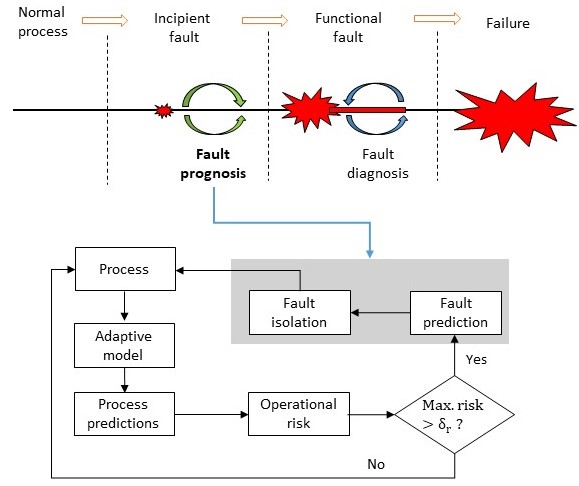
The traditional fault detection and diagnosis (FDD) methods employed for process monitoring follow a reactive fault management approach. These methods detect an already present fault and take corrective action to mitigate the damage to the process. In order to minimize the degradation that a fault can bring to a process, fault diagnosis methods aim at achieving early fault detection, which is still reactive fault management. By the time the fault has been detected and managed, the process might have been affected to some degree. This situation can be avoided by implementing fault prognosis approaches that predict the occurrence of an impending fault ahead of its time and take appropriate action beforehand. For fault prediction, it is essential to track the varying process dynamics in order to predict a fault in advance. For this purpose, employing an adaptive model such as OASIS that can readily cope with changing dynamics will aid in forecasting the future process behavior reasonably well, thereafter providing an early fault prediction.
Literature:
B. Bhadriraju, F. Khan, and J. S. Kwon, “OASIS-P: Operable adaptive sparse identification of systems for fault prognosis of chemical processes”, Journal of Process Control, 2021, 107, 114-126.
